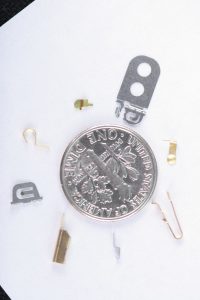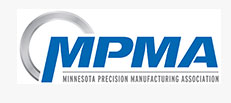Superior precision stamping is a quick and cost effective solution for producing vast quantities of complex products. There are 3 types of superior precision stamping applications that are currently being used at hundreds of factories throughout the world. The 3 types are intricate precision metalwork, micro precision stamping, and prototype design.
is a quick and cost effective solution for producing vast quantities of complex products. There are 3 types of superior precision stamping applications that are currently being used at hundreds of factories throughout the world. The 3 types are intricate precision metalwork, micro precision stamping, and prototype design.
Metal stamping utilizes stamping dies and high tonnage presses to forge a sheet of metal into a semi-complete or complete parts. When you use precision metal stamping it will improve the accuracy and speed of complex stamping applications. It does this by allowing the folding, stamping, drawing, or piercing of a particular product in a series or single operation.
There are disadvantages and benefits of precision stamping. One of the benefits is that the process can be highly automated which will allow the company to save labor costs and maintain high volume. The disadvantage, however, is that expensive tooling costs will not be financially effective for smaller production runs. Some of the other factors that need to be considered include difficulty making design changes after the tools have been created and long lead times.
For example, let’s take a look at the process for micro precision metal stamping. This type of procedure is capable of making minute cuts, stamps, folds, and bends in a work-piece. Normally, a micro precision stamping machine will support tools that have a diameter on the micron level. The minimum diameter capability of each machine will vary but it is common to have the machine to do .005 inches and .002 inch minimum specifications.
A micro precise metal stamping machine often works in union with 3-D computer software and photo etching so as to perform highly exact operations and exact specifications. This type of superior precision stamping has many benefits including improved flexibility, quick results, and the reduction of risks.
Intricate precision metal work, on the other hand, is often necessary for innovative designs or complex products that require a highly sophisticated precision stamping procedure. If this is necessary, a manufacturer will search out a stamping company that can specialize in intricate or complex precision metalwork.
These type of companies will have advanced technologies and considerable experience that is required for fabricating a product with intricate cuts, geometries, engravings, or folds that need exact specifications. Some of the technologies for this type of precision stamping include Class A dies, Transfer stamping, Deep draw stampings, and Magnified optical devices.





